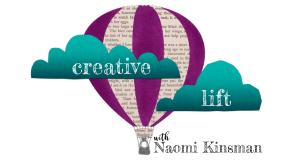The Life-Changing Effect of Language

You’ve probably heard at least one of these truths:
- Violent behavior is reduced when a person has the vocabulary to describe his or her emotional experience.
- Goals are more likely to be achieved simply because we have written them down.
- Journaling leads to resilience and stronger emotional health.
Each of these claims is backed by research. For instance, this study explores how a stronger, more expressive vocabulary tends to reduce aggressive behavior in toddlers. In general, the trend continues as children age.
If language helps us interact positively, achieve our goals, and live a healthy life, it’s clearly a powerful tool. Words seem so innocuous, though. They’re part of our daily life–a part we largely take for granted. What would happen if we paid just 10% more attention to our language?
Language to Make Us More Effective
What if, for instance, we thought mindfully about the words we put into an email? In his book, Deep Work, Cal Newport notes the difference between a tossed-together email and a more thoughtful one. Consider the difference between these two hypothetical responses:
Hey Peter,
Sure, I’d be happy to get together to discuss that idea we talked about at the conference. Let’s schedule a coffee.
OR
Hey Peter,
Sure, let’s discuss. I suggest:
- We each summarize our thoughts and bring our notes to our meeting. Let’s make sure to capture ideas on the audience, the approach and the team.
- We meet, outline a plan for our proposal, and set action steps.
- We aim to send the proposal out by the end of the month.
What do you say we meet at Convergent Coffee next Wed. 11 am? If that time doesn’t work for you, feel free to suggest another couple times that do.
Language to Help Us Connect
Or, on the opposite end of the emotional spectrum, what if we spent a few extra moments considering a compliment to a friend? Our first impulse might be:
Yummy dinner! Thanks.
But what if we said:
The spice of the jalapeño combined with the sweetness of the pineapple made your rice extra special. Thanks for putting time and creativity into our meal!
Why Consider Our Words?
Words are free, but taking the time to use them well requires extra thought. That extra thought is well worth the effort if it helps you strengthen a friendship or saves you significant amounts of time.
Well-considered words can help us:
- Connect with one another
- Reflect on our experiences
- Clarify our goals
- Request focused feedback
- Frame collaborative brainstorming
- Solve conflict
- Empower others
- Reflect the truth back to someone we love
And this list is only the start.
How might you change your life or the lives of others with your words this week?
I’d love to hear your thoughts! Share with me on Facebook or Twitter, or in the comments below.

